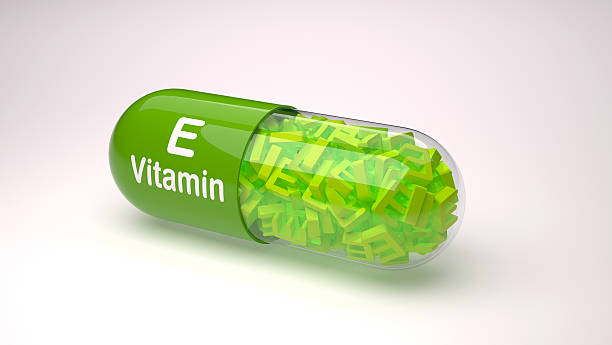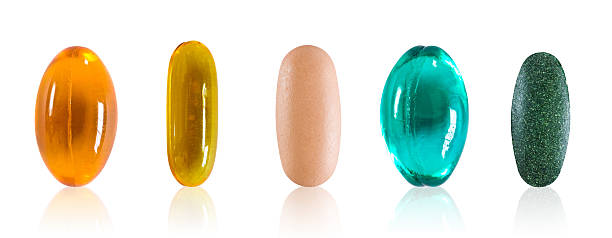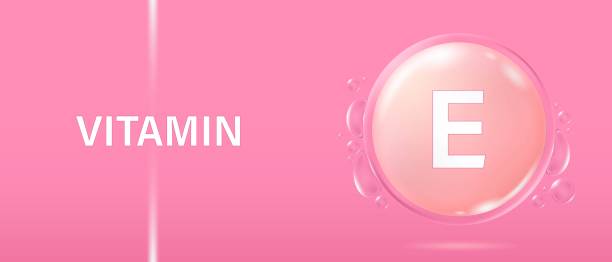
Vitamin E, a powerful antioxidant, plays an essential role in maintaining overall health. It supports skin health, boosts the immune system, and prevents oxidative stress. But there’s much more to Vitamin E than meets the eye. Let’s explore how this vitamin works, why it’s crucial for your body, and uncover some fascinating facts about it.
What is Vitamin E?
Vitamin E is a group of eight fat-soluble compounds, including tocopherols and tocotrienols, that are crucial for maintaining cell health and fighting free radicals. It is naturally found in a wide range of foods like nuts, seeds, and leafy greens. As an antioxidant, Vitamin E protects your cells from damage and helps reduce the signs of aging.
How Vitamin E Works in the Body
Vitamin E works by neutralizing free radicals, which are harmful molecules that can cause cellular damage. This makes it especially important for skin health, as it helps repair damaged cells and supports collagen production. Its fat-soluble nature allows it to be stored in the body’s fatty tissues, ready to be used when needed.

Health Benefits of Vitamin E
- Supports Skin Health Vitamin E is widely known for its skin-nourishing properties. It helps moisturize dry skin, reduces scars, and treats minor sunburn. Topical Vitamin E is often used in creams and lotions for its ability to heal and rejuvenate the skin.
- Promotes Hair Growth Vitamin E can improve blood circulation to the scalp, promoting healthy hair growth. Its antioxidant properties also help prevent oxidative stress in hair follicles, reducing the risk of premature hair loss and promoting shiny, healthy hair.
- Strengthens the Immune System Consuming adequate Vitamin E strengthens your immune response by supporting the production of white blood cells. This makes it a critical nutrient for fighting off infections and improving overall immune health.
- Eye Health Protection Vitamin E has been shown to reduce the risk of age-related macular degeneration, a leading cause of vision loss. Its antioxidant properties help protect the eyes from oxidative damage, ensuring long-term eye health.
- Heart Health Benefits Research indicates that Vitamin E may play a role in preventing cardiovascular disease. It helps in reducing cholesterol oxidation, which can lead to plaque build-up in arteries, and improves overall blood circulation.
Fascinating Facts About Vitamin E
- Vitamin E and Longevity: Some studies suggest that adequate Vitamin E intake could promote a longer life. Its ability to reduce oxidative stress is believed to contribute to longevity and reduced risk of chronic diseases.
- Natural vs. Synthetic: Natural Vitamin E (labeled as “d-alpha-tocopherol”) is more bioavailable than synthetic forms (labeled as “dl-alpha-tocopherol”). This means that the body absorbs and utilizes natural Vitamin E more efficiently.
- Vitamin E in Anti-Aging: Due to its role in neutralizing free radicals, Vitamin E is a key ingredient in many anti-aging products. It’s known to improve skin elasticity, reduce wrinkles, and even out skin tone over time.
Truths About Vitamin E Supplementation
- Over-Supplementation Risks: While Vitamin E is essential for good health, over-supplementing can cause side effects. Since it is fat-soluble, excess Vitamin E can accumulate in the body and lead to issues like blood thinning and increased risk of hemorrhage. Always consult with a healthcare provider before taking high-dose Vitamin E supplements.
- Interaction with Medications: Vitamin E supplements can interfere with blood-thinning medications, increasing the risk of bleeding. If you are on any such medications, it’s crucial to seek medical advice before starting Vitamin E supplements.
- The Role of Vitamin E in Pregnancy: Adequate Vitamin E levels are important during pregnancy, as it supports fetal development. However, pregnant women are advised to avoid high doses of supplements unless recommended by a doctor.
How to Incorporate More Vitamin E Into Your Diet
You don’t need to rely on supplements to get enough Vitamin E. Many foods are rich in this essential vitamin:
- Almonds: A handful of almonds provides nearly all the Vitamin E you need for the day.
- Spinach: This leafy green is packed with Vitamin E and other essential nutrients.
- Avocados: A delicious source of healthy fats and Vitamin E.
- Sunflower Seeds: Just a small amount of these seeds can give you a significant Vitamin E boost.
- Olive Oil: Cooking with olive oil adds Vitamin E to your diet naturally.
Conclusion: Why Vitamin E Matters
Vitamin E is not just another nutrient; it’s a powerhouse of health benefits. From promoting glowing skin to supporting your immune system and heart health, Vitamin E proves to be vital in multiple ways. Ensuring you get enough of this nutrient through your diet or supplements (under medical supervision) can improve your overall well-being.
With these facts and benefits in mind, it’s clear that Vitamin E should be part of your daily health regimen.




